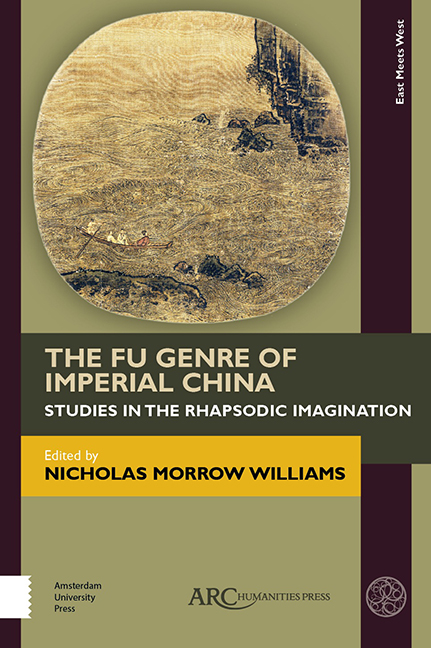5 - Xu Wei’s Early Modern Rhapsodies: Catalogue and Critique, Lyricism and Logic
Published online by Cambridge University Press: 20 November 2020
Summary
CRITICS LIKE CRAIG Clunas and Philip Kafalas have noted a shift toward the realm of individual taste in seventeenth-century Chinese art and criticism. The propensity for educated elites to narrow their focus to the realms of idiosyncratic enjoyment, and the manner, rather than the object, of possession, manifests especially in the lifestyle writings of connoisseurs like Wen Zhenheng 文震亨 (1585– 1645) and Li Yu 李漁 (1610– 1680), and the belletristic xiaopin 小品 essays of tastemakers like Yuan Hongdao 袁宏道 (1568– 1610) and Zhang Dai 張岱 (1597– 1679). Materially, this change is attributed to the rapid development of early modern commerce; in thought, most often to the iconoclasm of Wang Shouren 王守仁 (1472– 1529, better known as Yangming 陽明) and those whom he influenced, including Li Zhi 李贄 (1527– 1602) and the “Taizhou School.” I argue here that the literature of lifestyle and individual taste finds another, perhaps unexpected, precursor in the fu poetry of sixteenth-century polymath, Xu Wei 徐渭 (1521– 1593), himself a follower of Yangming neo-Confucianism, among other schools of thought, and an original thinker on par with Li Zhi.
The focus of Xiaopin writers on personal idiosyncrasies is well known. Equally well known are the personal idiosyncrasies of Xu Wei, but not because he himself emphasized them. On the contrary, Xu's own prose accounts of his mental illness, self-mutilation, uxoricide, imprisonment, drinking, and iconoclasm are terse and prosaic. It is in his poetry and drama, and in the palpable movements of his calligraphic brush, where connoisseurs of the strange and marvelous find “wild man” Xu Wei. Yuan Hongdao is known for helping “discover” this version of Xu, and for his contribution to the xiaopin genre of literature of personal taste.
Twentieth-and twenty-first-century critics know Xu primarily as a painter and, more recently, a dramatist. As Yuan Hongdao has become better known in recent centuries for his lifestyle essays rather than his poetry (the reverse of his situation in life), Xu's own poetry, and especially his poetry in the complex fu genre, have received little attention in the twentieth and twenty-first centuries.
- Type
- Chapter
- Information
- The Fu Genre of Imperial ChinaStudies in the Rhapsodic Imagination, pp. 83 - 110Publisher: Amsterdam University PressPrint publication year: 2019
- 1
- Cited by



